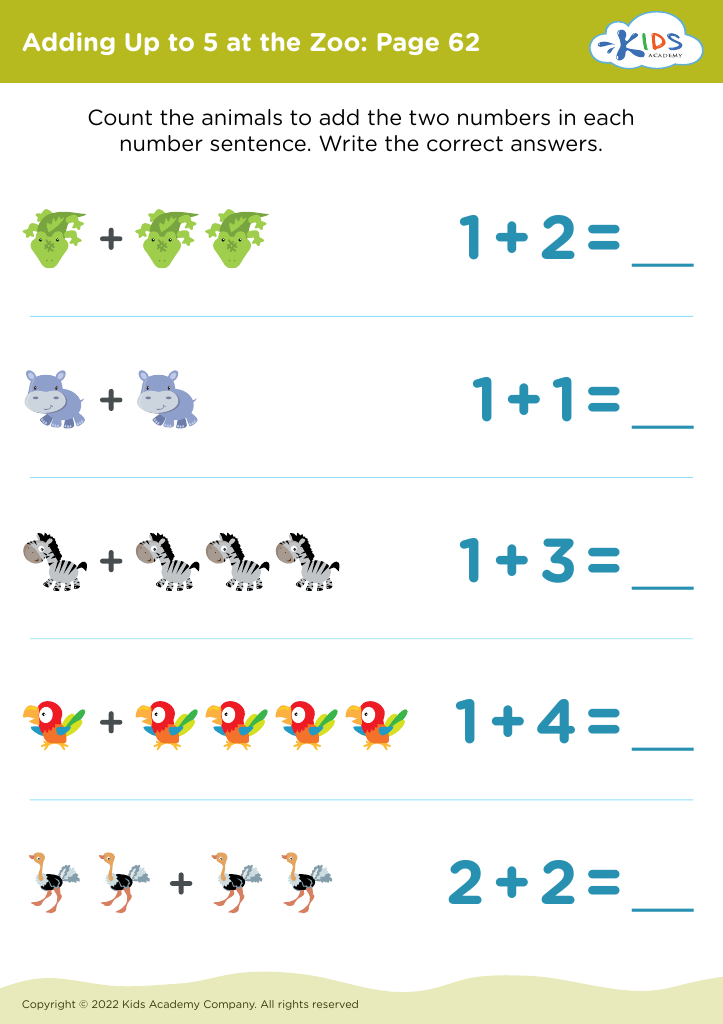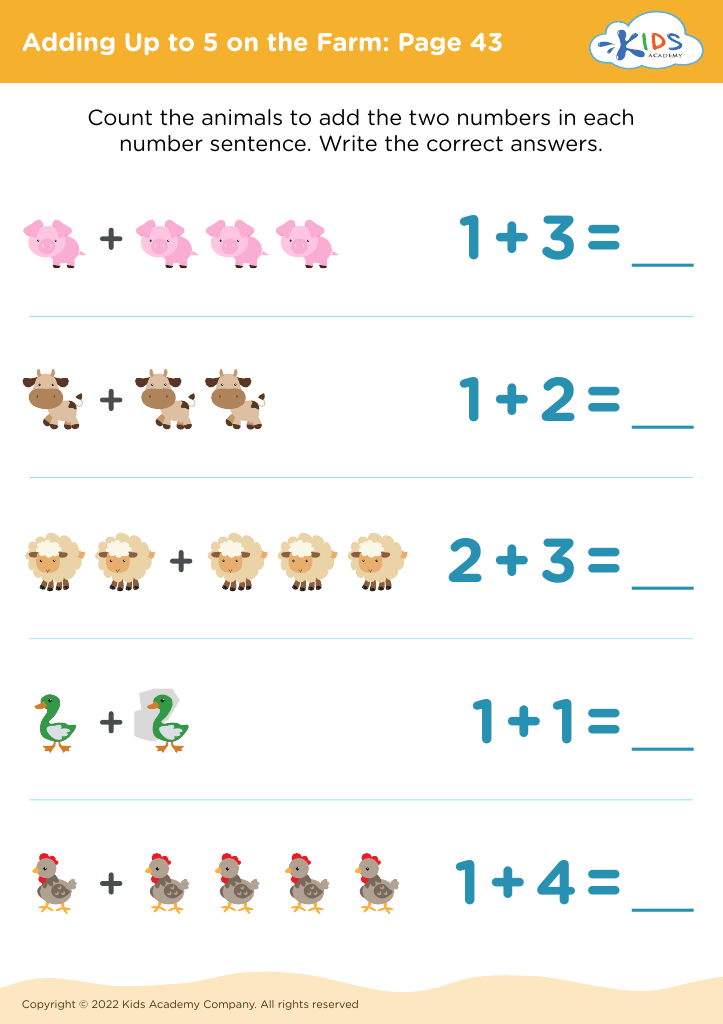Numeracy development Addition Worksheets for Ages 5-8
3 filtered results
-
From - To
Unlock the potential of young minds with our Numeracy Development Addition Worksheets for Ages 5-8. Tailored to engage early learners, these worksheets are designed to strengthen fundamental math skills through fun, interactive activities. From simple single-digit addition to more challenging problems, each sheet encourages critical thinking and boosts confidence in math. Perfect for classroom use or at-home practice, these worksheets pave the path for a solid arithmetic foundation. Invest in your child's numeracy today with Kids Academy - where learning math becomes an exciting adventure!


Adding Flower Petals Worksheet
Numeracy development, particularly addition for children aged 5-8, is a cornerstone for future academic achievement and everyday functioning. At this early stage, children are like sponges, readily absorbing concepts that form the foundation for more complex mathematical operations. Mastering addition helps them develop critical thinking skills, problem-solving abilities, and logical reasoning. Practicing addition not only builds their confidence but also prepares them to tackle advanced arithmetic, fractions, and even algebra in later years.
Furthermore, numeracy skills intersect with various aspects of daily life, such as handling money, telling time, cooking, and shopping. Early arithmetic proficiency makes these experiences more intuitive and less stressful for children. Importantly, good numeracy is also linked to better decision-making skills and higher socioeconomic status in adulthood.
Teachers and parents play crucial roles in fostering this development. Helping children practice addition through games, interactive activities, and real-world applications will make the learning process enjoyable and effective. Early intervention can also identify any learning difficulties, allowing for timely support. Therefore, cultivating strong numeracy skills, starting with addition, during these formative years sets the stage for lifelong learning and practical success.
 Assign to My Students
Assign to My Students





















